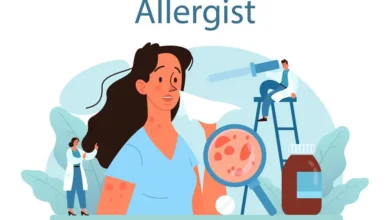The Surprising Health Benefits of Entertainment: How Laughter and Fun Can Improve Your Well-Being!
Life can be stressful and overwhelming at times, but did you know that laughter and fun play a crucial role in improving your overall well-being? In this blog post, we will explore the surprising health benefits of entertainment and how incorporating more joy into your life can have a positive impact on both your physical and mental health. So sit back, relax, and get ready to discover how a little bit of laughter can go a long way toward achieving optimal wellness!
Introduction: Benefits of Entertainment: Setting the stage for the surprising connection between entertainment and health
When we think about improving our health, practices like exercising, eating well, and getting enough sleep often come to mind. However, one aspect of our lives that we often overlook when it comes to its impact on our well-being is entertainment.
Entertainment has always been a big part of human life. From ancient civilizations using storytelling as a form of entertainment to modern times, when we have access to various forms of entertainment such as movies, TV shows, music, and video games, it has become an essential part of our daily routines.
But what if we told you that indulging in entertainment can actually have positive effects on your health? That’s right; laughter and fun can improve your overall well-being in surprising ways.
In this blog post, we will explore the connection between entertainment and health and how incorporating more fun into your life can result in a healthier you. So sit back, relax, and get ready to discover the incredible benefits of laughter and fun!

The Power of Laughter
Have you ever noticed how good it feels to laugh? Whether it’s from watching a hilarious comedy or sharing jokes with friends, laughter has a way of making us feel happy and carefree.
And there is scientific evidence to support this feeling. Studies have shown that laughing can release endorphins, also known as “feel-good” hormones, which not only improve mood but also reduce stress levels. This means that indulging in some good old-fashioned laughter can help lower blood pressure, boost immunity, and even relieve pain.
Furthermore, research has found that people who laugh frequently are less likely to develop heart disease than those who don’t. This is because laughing helps increase blood flow by expanding blood vessels—similar to what happens during exercise!
Fun Activities for Improved Well-Being
Apart from laughter-induced benefits, engaging in activities for fun can also have positive effects on your health. Whether it’s playing a sport, dancing, or even coloring in an adult coloring book, these activities can help reduce stress and boost creativity.
Additionally, participating in group activities like game nights or going to concerts with friends can improve social connections, which is crucial for our mental and emotional well-being.
So the next time you feel guilty for taking some time off to watch a movie or play a video game, remember that indulging in entertainment not only provides temporary pleasure but also has long-term benefits for your health.

The Science Behind Laughter: Exploring how laughter benefits our physical and mental well-being
Laughter is a universal language that transcends culture, age, and social barriers. It is an expression of joy and happiness that has been scientifically proven to have numerous physical and mental health benefits. In fact, the saying “laughter is the best medicine” holds more truth than we may realize.
The act of laughing triggers a series of complex physiological responses in our bodies. When we laugh, our brain releases endorphins—hormones known for their ability to relieve pain and induce feelings of pleasure. These endorphins also act as natural stress relievers, helping us relax and unwind after a long day.
Moreover, laughter increases our heart rate and oxygen intake, which results in improved blood flow throughout the body. This boost in circulation can help improve cardiovascular health by reducing blood pressure and strengthening the immune system. Studies have shown that people who laugh frequently are less likely to develop heart disease or suffer from strokes.
But laughter benefits us physically and significantly impacts our mental well-being. When we laugh, our brains release neurotransmitters such as dopamine and serotonin—chemicals responsible for regulating mood and promoting feelings of happiness. This explains why we feel so good after having a good laugh with friends or watching a hilarious comedy show.
In addition, laughter has been shown to reduce levels of cortisol, the hormone responsible for stress. High levels of cortisol can lead to various health problems, such as weight gain, high blood pressure, and weakened immune function. By decreasing cortisol levels through laughter, we can effectively combat stress-related illnesses.
Furthermore, laughter promotes social bonding by strengthening relationships between individuals. Sharing a genuine laugh with someone creates a sense of connection and trust, which can improve communication skills and enhance overall social well-being.
Research has also found that humor therapy—using humor or laughter as a form of treatment—can be beneficial for those suffering from depression or anxiety disorders. Laughter helps shift perspective by providing temporary relief from negative thoughts and emotions, allowing individuals to better cope with their mental health struggles.
The science behind laughter is clear: It has a multitude of physical and mental health benefits. So, the next time you find yourself laughing uncontrollably, remember that you are not only having a good time but also improving your well-being in more ways than one. Incorporating humor and laughter into our daily lives can have long-lasting effects on our overall health and happiness.

Fun for the Mind: How engaging in enjoyable activities can improve cognitive function and memory
When we think about activities that improve our cognitive function and memory, we often picture things like crossword puzzles or brain teasers. While these are certainly beneficial for our minds, it’s important to recognize the power of simply having fun.
Engaging in enjoyable activities can have a surprisingly positive impact on our overall cognitive function and memory. This is because when we are having fun, our brains release dopamine, a neurotransmitter associated with pleasure and reward. This chemical not only makes us feel good but also helps to strengthen connections between brain cells, improving communication and overall cognitive performance.
One study conducted by researchers at University College London found that participants who engaged in leisure activities such as playing games or socializing had a lower risk of developing dementia later in life. The researchers theorized that the mental stimulation and social interaction involved in these activities may help to build up “cognitive reserve,” which is the brain’s ability to withstand damage from diseases like Alzheimer’s.
Additionally, participating in enjoyable activities can help improve memory. When we are fully immersed in something enjoyable, our brains tend to be more focused and attentive. This heightened state of awareness can lead to better information retention and improved recall later on.
But what exactly counts as an enjoyable activity? The key is to find something that you genuinely enjoy doing. It could be anything from dancing or gardening to painting or cooking—the possibilities are endless! Even something as simple as laughing with friends or watching a funny movie can provide significant benefits for your mind.
In fact, research has shown that laughter has many health benefits, including reducing stress hormones and increasing immune cell production. A good belly laugh has also been linked to improved mood and relaxation—both essential factors for maintaining optimal cognitive function.
It’s crucial to note that engaging in enjoyable activities doesn’t just benefit older adults; it can have positive effects on people of all ages. For children and teenagers, participating in leisurely pursuits can aid in brain development and promote creativity. For adults, it can serve as a much-needed break from the daily grind and help mitigate stress levels.
Please don’t underestimate the power of having fun when it comes to your cognitive function and memory. Taking time to engage in enjoyable activities not only makes us happier but also has significant benefits for our overall well-being. So go ahead and indulge in some laughter, playtime, or any activity that brings you joy—your mind will thank you for it!
Stress Relief through Entertainment: Understanding how fun and relaxation can reduce stress levels
In today’s fast-paced and high-stress world, finding ways to relax and unwind is more important than ever. One effective method of stress relief is through entertainment. Whether it’s watching a funny movie, playing a game with friends, or attending a concert, engaging in enjoyable activities can have a significant impact on reducing stress levels.
The connection between fun and relaxation may take time to become apparent. Still, research has shown that participating in entertaining activities can stimulate the release of endorphins, chemicals in the brain that act as natural painkillers and mood boosters. These endorphins are responsible for the feelings of pleasure and happiness we experience when we engage in something enjoyable.
But how exactly does this help with stress relief? Well, when we are stressed, our bodies go into “fight or flight” mode, releasing hormones like adrenaline and cortisol, which send us into a state of heightened alertness. However, prolonged exposure to these hormones can lead to negative effects such as anxiety, depression, and even physical health issues like high blood pressure.
Engaging in entertainment activities counteracts the body’s stress response by triggering the release of endorphins, which promote feelings of calmness and well-being. This helps to reduce the levels of stress hormones in our bodies while also promoting relaxation.
Moreover, entertainment often involves social interaction, whether it’s laughing with friends or enjoying a show with loved ones. Social connections are essential for our mental health and well-being as they provide support and create positive emotions that can help alleviate stress.
Additionally, participating in entertaining activities can temporarily distract us from our worries and problems. When we are focused on having fun and being present in the moment, our minds can take a break from constant thoughts about work or other stressful situations.
It’s worth noting that not all forms of entertainment will have the same effect on everyone when it comes to relieving stress. It’s important to find activities that you enjoy and that align with your interests. Some may find relaxation through watching a comedy, while others may prefer more physical activities like dancing or playing sports.
Incorporating entertainment into our lives can have significant benefits for our mental and emotional well-being. By understanding the connection between fun and relaxation, we can use this knowledge to actively seek out enjoyable experiences to reduce stress levels. So go ahead and make some time for laughter and fun—your mind and body will thank you!
Connecting with Others Through Entertainment: The social benefits of shared experiences and bonding over entertainment
In today’s fast-paced and technology-driven world, it can be easy to feel disconnected from others. However, one powerful way to bridge this gap and connect with others is through entertainment. Whether it’s watching a movie with friends or attending a concert with family, shared experiences of entertainment can bring people together and foster meaningful connections.
Shared entertainment experiences often involve laughter, which has been found to have numerous social benefits. According to research, laughter releases endorphins in our brains that create feelings of happiness and well-being. When we experience these positive emotions alongside others, it strengthens our bonds and creates a sense of camaraderie. This is why watching comedies or attending comedy shows is a popular activity for groups; they provide an opportunity for everyone to laugh together and build relationships through shared enjoyment.
Furthermore, entertainment can serve as a common ground for individuals from different backgrounds or perspectives. Attending concerts or festivals allows people to come together over their love for music, regardless of age, ethnicity, or social status. This mutual interest creates an instant connection between strangers and can lead to new friendships.
Another aspect of connecting through entertainment is the ability to bond over shared memories and inside jokes. Attending a play or musical with loved ones becomes more than just watching a performance—it becomes a special memory that can be reminisced upon in the future. These shared memories not only strengthen existing relationships but also create lasting connections with those who were part of the experience.
Moreover, participating in group activities centered around entertainment can also help break down barriers between individuals by providing opportunities for communication and interaction. For instance, playing team-based video games or participating in escape room challenges requires cooperation and communication among players, leading to improved teamwork skills and stronger bonds between participants.
In addition to fostering connections between individuals, entertainment also has the power to bring communities together. Events such as cultural festivals or outdoor movie screenings allow people from all walks of life to come together and celebrate a shared interest or experience. This sense of community can improve overall social cohesion and contribute to a sense of belonging.
Entertainment not only provides us with an escape from our daily stresses but also has the potential to bring people closer together. Whether it’s through laughter, shared memories, or creating new connections, the social benefits of bonding over entertainment are numerous and should be embraced for improved well-being. So the next time you’re looking for ways to connect with others, consider incorporating some form of entertainment into your plans; you might just be surprised by the positive impact it has on your relationships.

Boosting Creativity and Productivity: How Indulging in
Boosting Creativity and Productivity: How Indulging in Entertainment Can Enhance Your Mental Performance
In today’s fast-paced world, we are constantly bombarded with stress and pressure, which can take a toll on our mental health. This is why it is crucial to find ways to boost our creativity and productivity to maintain a healthy balance between work and play. Surprisingly, one powerful way of achieving this is through entertainment.
Entertainment includes activities such as watching movies, reading books, playing games, attending concerts or shows, and even engaging in fun hobbies. These forms of entertainment have been found to have numerous benefits for our overall well-being, including improving our mental performance.
One key benefit of indulging in entertainment is its ability to stimulate creativity. When we engage in activities that bring us joy and pleasure, the reward center in our brain activates, releasing dopamine—a chemical associated with motivation and pleasure. This surge of dopamine not only improves our mood but also opens up pathways for new ideas and perspectives.
Furthermore, participating in various forms of entertainment exposes us to different experiences and perspectives that can spark creative thinking. For example, reading a book can transport us into a whole new world, while watching a movie can offer unique visuals that inspire us creatively.
In addition to boosting creativity, entertainment also plays a significant role in improving productivity. Taking breaks from work or other daily responsibilities to engage in enjoyable activities has been proven to enhance focus and concentration when returning to the tasks at hand. It allows our minds to rest and recharge, which ultimately leads to improved productivity levels.
Moreover, engaging in entertaining activities with others can also improve teamwork skills and foster better communication among colleagues or friends. Playing games or attending events together promotes collaboration and strengthens relationships, which ultimately contributes to an increase in productivity.
It is important to note that not all forms of entertainment will have the same effect on everyone. Each individual needs to find activities that they enjoy and find rejuvenating. Whether it’s dancing, painting, or playing a sport, the key is to do something that brings joy and relaxation.
Indulging in entertainment not only provides us with moments of fun and relaxation but also significantly benefits our mental performance. By boosting creativity and productivity, it helps us maintain a healthy balance in our lives, which is essential for our overall well-being. So next time you feel overwhelmed or burned out, take some time to engage in an enjoyable activity—your mind and body will thank you for it.
Consultation
Laughter is often referred to as the best medicine, and for good reason. The act of laughing is not only enjoyable but also has numerous health benefits that can improve our overall well-being. In this section, we will explore the concept of “consultation”—a combination of laughter and fun—and how it can positively impact our physical, mental, and emotional health.
Firstly, let’s break down the components of consultation. Laughter is a natural response to humor or joy that involves rhythmic vocalizations and facial expressions. It activates multiple parts of the brain and releases feel-good chemicals like endorphins, which can reduce stress and pain levels. Fun, on the other hand, refers to activities or experiences that bring us pleasure and enjoyment. When combined in consultation, they create a powerful force that can have remarkable effects on our well-being.
One major benefit of consultation is its ability to reduce stress levels. Stress is a common part of everyday life for many people, but prolonged stress can lead to negative impacts on both physical and mental health. However, when we engage in laughter-inducing activities or spend time having fun with friends or loved ones, we release tension in our bodies and experience a sense of relaxation. This leads to lower levels of cortisol (the stress hormone) in our bodies, which helps improve our immune system and lowers blood pressure.
Furthermore, engaging in consultation has been shown to boost our mood and increase positive emotions such as happiness and joy. When we laugh or engage in fun activities with others, we create a sense of connection with those around us, which improves social bonds and decreases feelings of loneliness or isolation. In turn, this can lead to improved self-esteem as we feel more connected to others.
In addition to its psychological benefits, there are also physical benefits associated with consultation. Studies have shown that laughter increases oxygen intake, stimulating circulation throughout the body and leading to improved cardiovascular health. It can also have a positive impact on our respiratory system, strengthening our lungs and reducing the risk of respiratory infections.
Consultation is a powerful tool that can improve various aspects of our well-being. By incorporating laughter and fun into our daily lives, we can reduce stress, boost mood, strengthen social connections, and even improve physical health. So go ahead and add some consultation to your routine—it’s good for both your mind and body!



